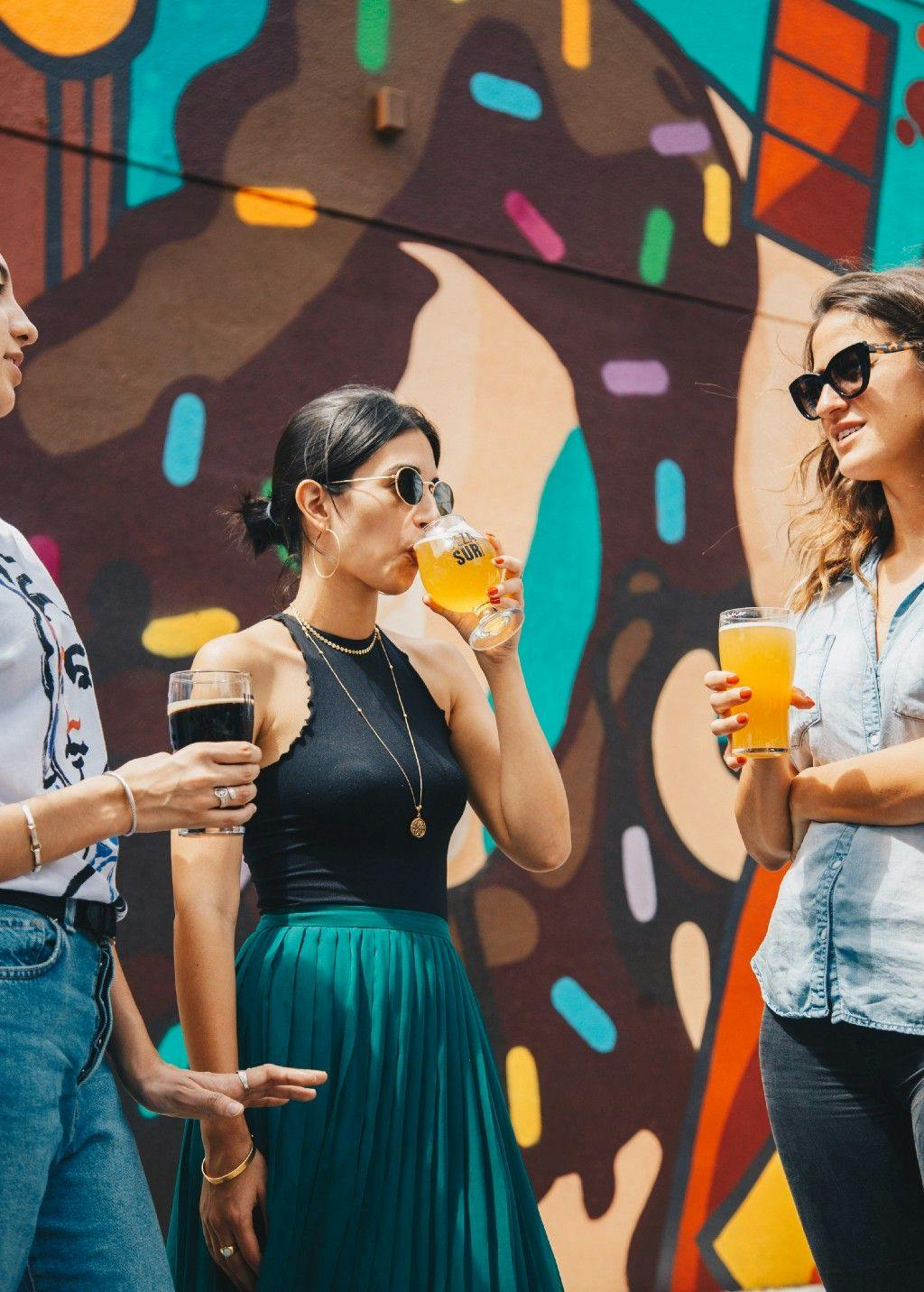As Nextatlas anticipated, Resale thrives amidst the pandemic
TREND CONFIRMATIONS
The “Resale Reloaded” trend, detected by our Platform two years ago, continues growing and different brands want to take part of this market in full development.

Two years ago, our platform identified a rising movement through the analysis of thousands and thousands of online data points: consumers were showing a great interest in second-hand products.
By applying AI, we were able not only to detect this interest but also to predict that this behaviour was becoming a trend and was going to stay for a long time.
We called it “Resale Reloaded” and today is the hot topic across multiple industries.
There is no doubt that Fashion is the main industry involved in this matter. The rise in people’s awareness of the waste this industry produces and how it affects the environment is one of the reasons why clothing resale is growing consistently.
However, what started as a business led mainly by thrift shops and second-hand e-commerce resellers, the current landscape is completely different. Brands are taking up the challenge of offering resale services for their own garments, showing they are open to reinvention in order to connect with a different, conscious and value-driven consumer.
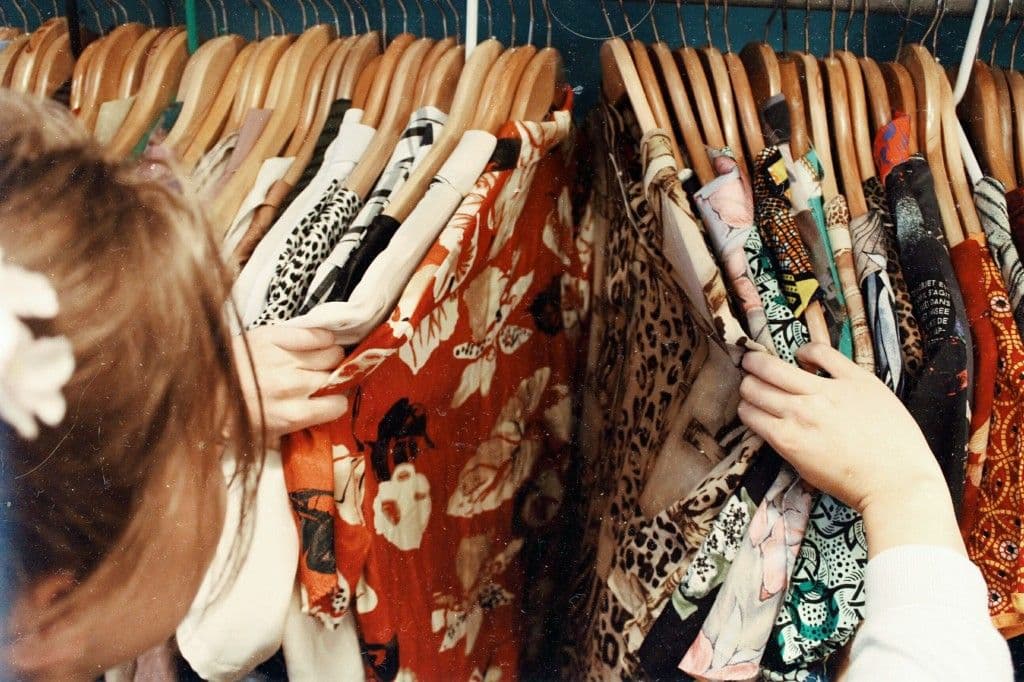
Photo by Becca McHaffie on Unsplash
Levi’s is one of the brands working towards this positioning. Besides launching a new line of sustainable denim, they created a buy-back program that encourages clients to sell their used denims to the brand, in exchange of a gift-card that can be redeemed at their stores. The amounts of the gift-cards vary according to the products delivered: between $15 to $ 25 for jeans in good condition and $30 to $35 for Levi’s vintage denim. In addition, “rescued” pieces can be purchased online at the official brand website.
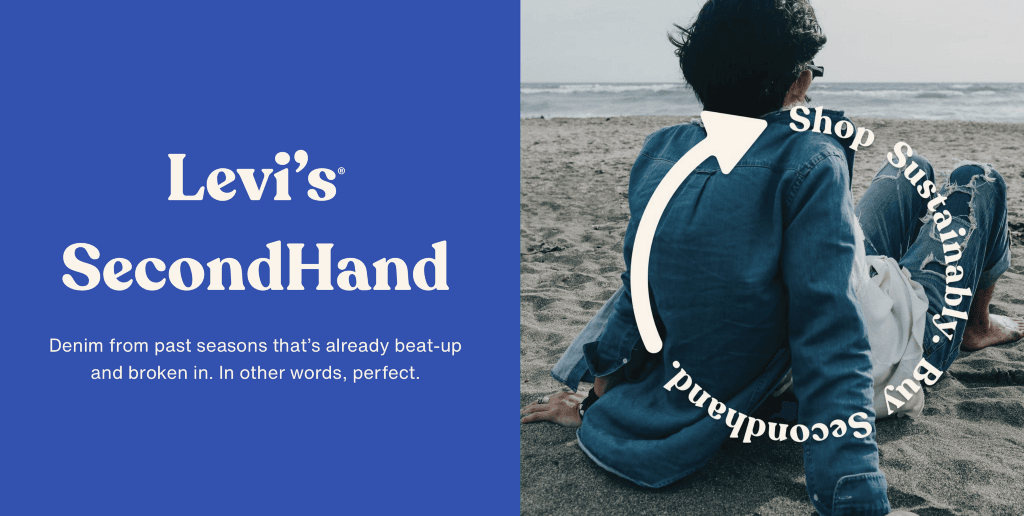
Image Credit: Levi’s SecondHand
It is clear that the world of used clothing is no longer exclusively connected to charity shops or donation stores. The most convincing proof of this are luxury brands creating second-hand initiatives for their consumers, something that was quite unthinkable in the past.
This October, Gucci announced a partnership with The RealReal, the world’s largest online marketplace for authenticated, consigned luxury goods. The collaboration involves the creation of a special Gucci e-shop stocked with consignors’ items as well as merchandise brought in directly from Gucci.
Besides, in order to reinforce the concept of “circularity” and “sustainability” behind this initiative, for every Gucci item purchased or sold, The RealReal will plant a tree through One Tree Planted, a nonprofit working on global reforestation.
Gucci hasn’t been the only luxury brand taking this step: Burberry and Stella McCartney have also partnered with The RealReal, proving that luxury’s second-hand is going strong.
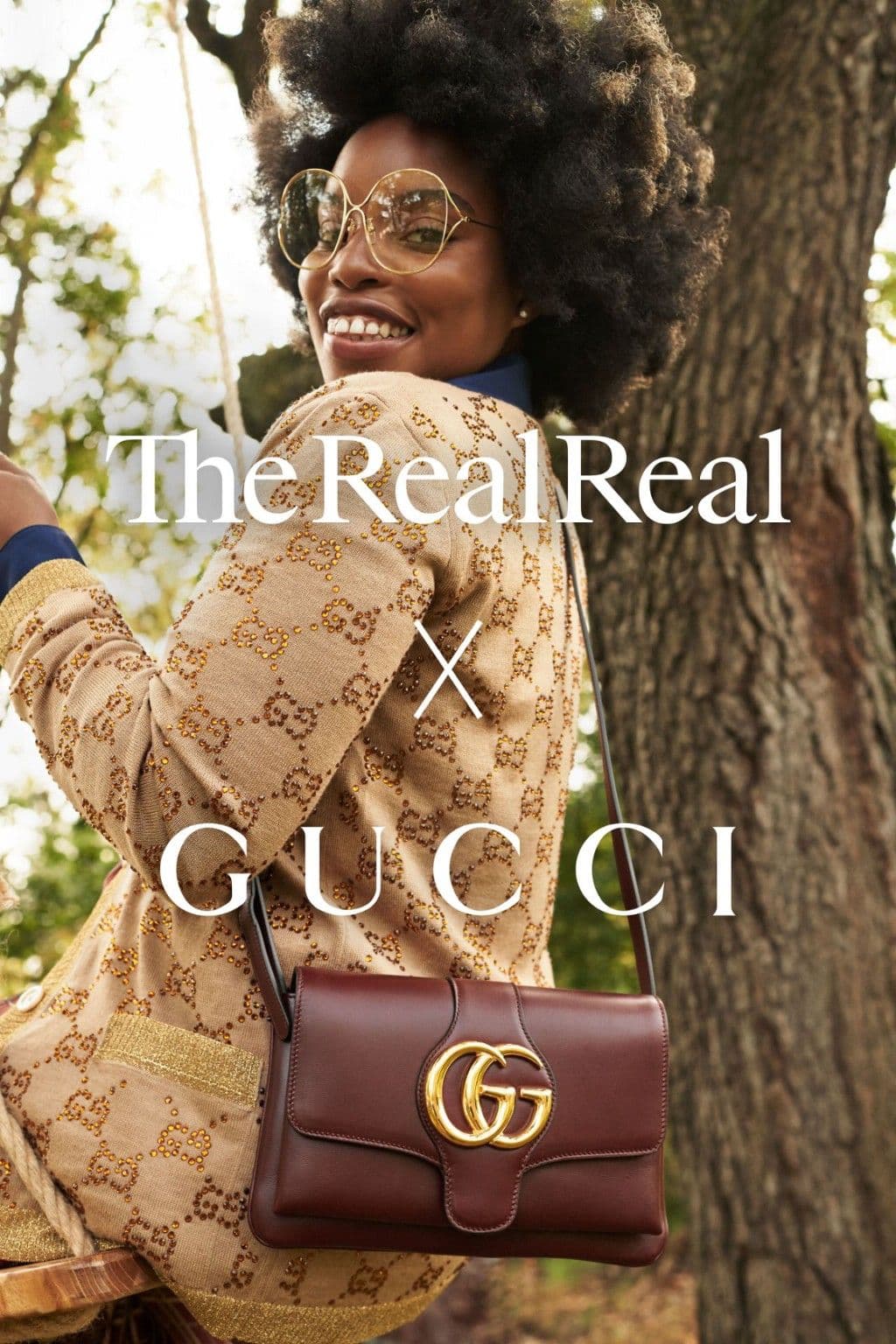
Gucci partnership with The RealReal.
But is this trend only applicable to the Fashion industry? Not at all. We are seeing that people awareness on the impact of consumption and waste is spreading to different categories. Actually, consumers are looking for multiple “previously loved” products such as make-up (yes, you can buy second-hand makeup at Poshmark, for example), decoration and furniture.
In fact, the Swedesih giant Ikea, is launching a “buy back” scheme for unwanted furniture. They are offering vouchers of up to 50% of the original price (depending on the status of the returned items) to be spent at their stores. At the same time, the company will resell the furniture in impeccable condition and recycle the ones not so good.
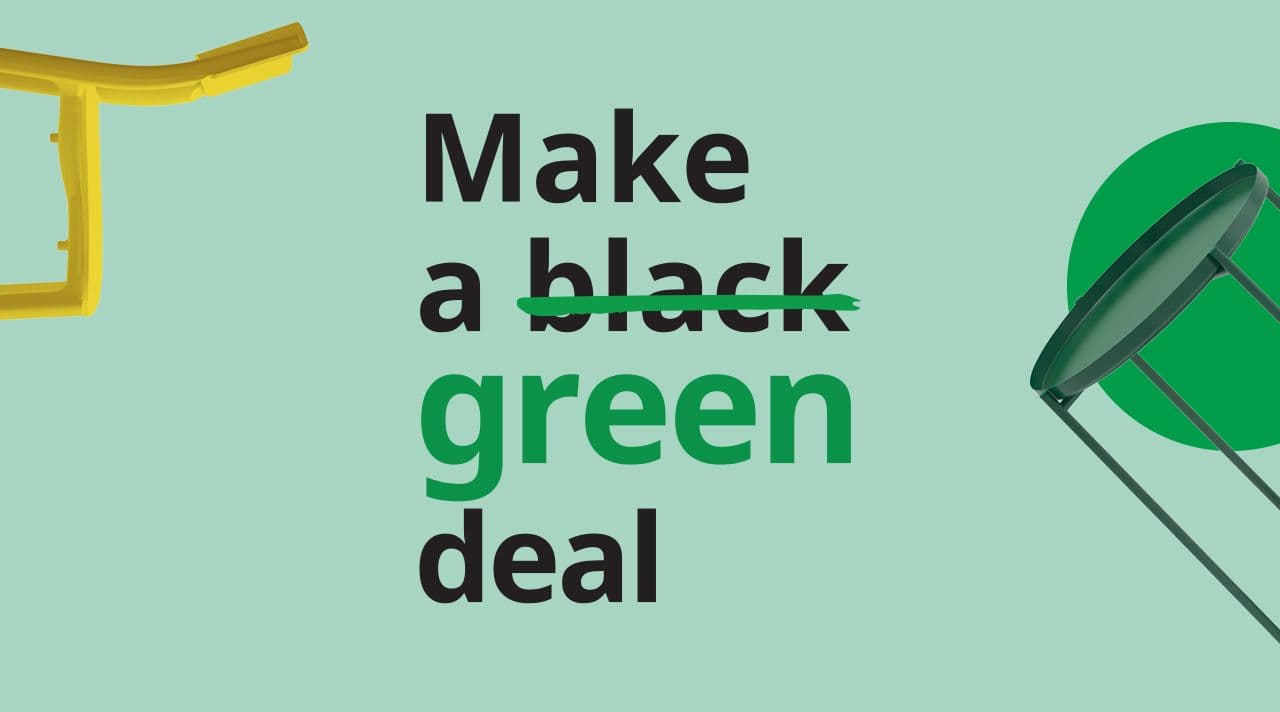
Credits: IKEA Furniture Buy-back
We could say that the pandemic has accelerated this trend remarkably and has expanded it to other sectors: the economic crisis generated by COVID19 has left consumers low on funds and, because of that, they are now more open to selling their goods or buying used products in general.
According to Nextatlas algorithms, “Resale Reloaded” is still developing and evolving and is expected to grow 13% in the next six months.
Plus, Denmark, France, Holland, Germany, Spain and the UK are the markets where we will see a bigger evolution.
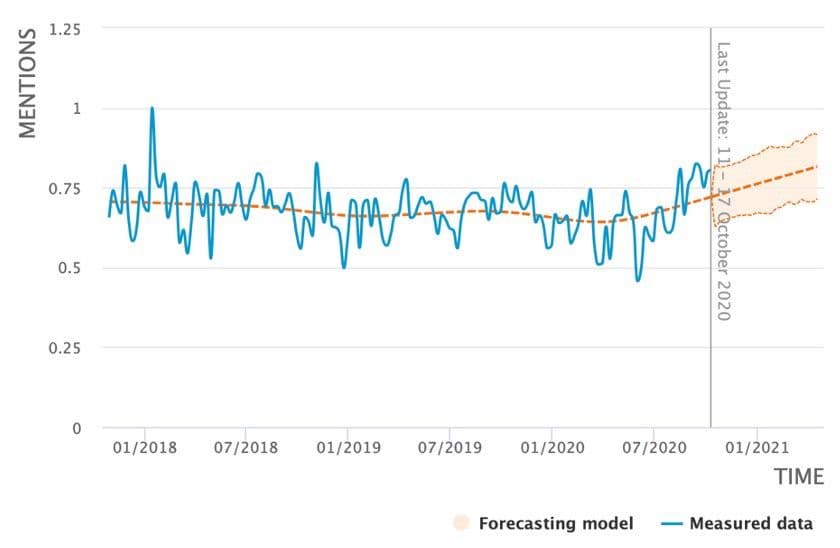
Timeline showing the growth in popularity of the “Resale Reloaded” trend on Nexatlas.
Do you want to know who are the consumers most interested in the world of resale? Do you want to know what their profile or lifestyle is like? Do you want to find out what they value when buying second-hand? Or their most loved brands? Talk to us! We can help you unlock these questions through the power of data.
Trend lines, data, and information described in this article emerge from the ongoing analysis performed by Nextatlas on its global observation pool made of innovators, early adopters, industry insiders expressing their views on Twitter, Instagram, and Reddit.
To learn more about our AI, discover Nextatlas Methodology here
Related articles:

ADVERTISING
Presence Over Posture: Why Brands Are Trading Soft Neutrality for Sharp Identity
Italy
Torino - Via Stampatori 4, 10122(Operational headquarter)+39 011/0864065VAT number and registration number at the Registro delle Imprese di Cagliari: 03428550929 paid share capital € 167.740,00 — © 2024 iCoolhunt SpA.

